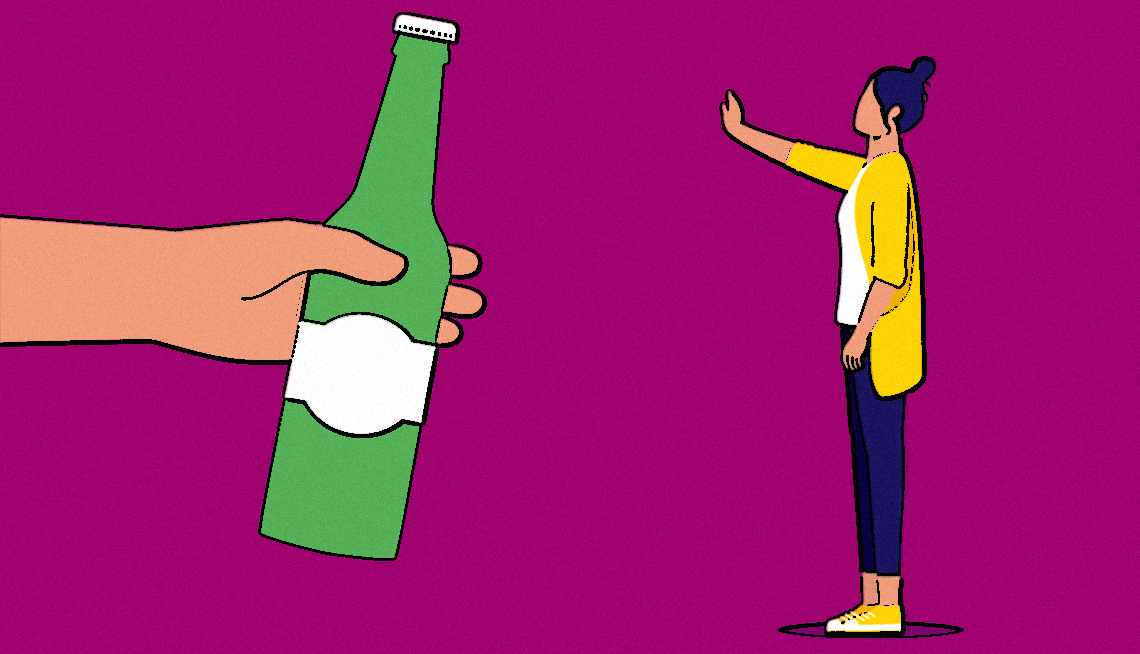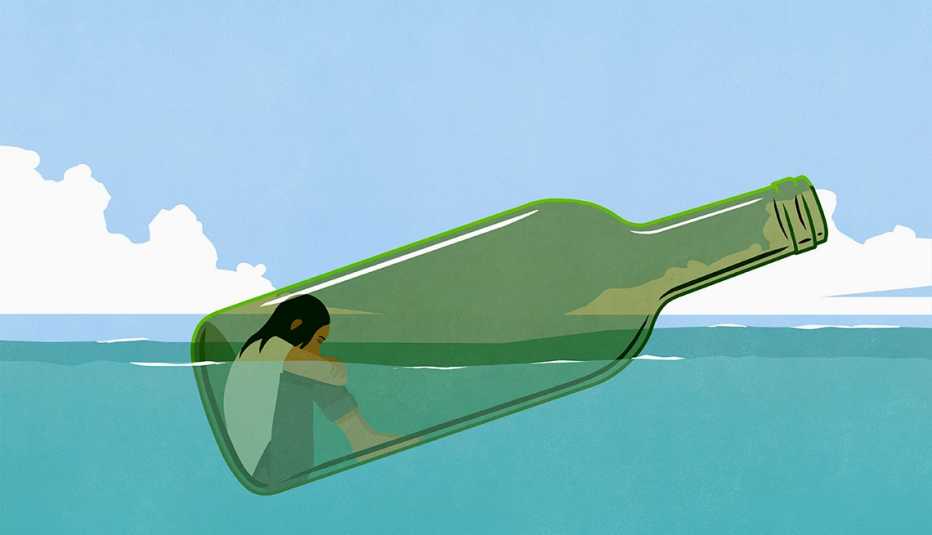AARP Hearing Center
During the first year of the COVID-19 pandemic, adults 50 and older led the way as most likely to increase their alcohol consumption, according to a 2022 study from researchers in California. “And for many individuals, that spike has been maintained,” says Lara Ray, a professor of psychology and psychiatry at the University of California, Los Angeles and a coauthor on the study.
That’s bad news when it comes to the health of older adults. The latest research indicates that alcohol consumption increases risks for more than 200 health problems, including heart disease, liver disease, depression, anxiety, stroke and cancer. And experts stress that those increased risks are incurred at every level of consumption — from a drink or two a day to heavier habits.
Scaling back alcohol use, however, can be difficult for many, including the more than 14 million U.S. adults with alcohol use disorder (AUD), which is defined as an impaired ability to stop or control alcohol use despite its known consequences. A variety of factors can play into people’s drinking patterns, including genetics, depression, anxiety and stress. And stigma often keeps people who are affected by alcohol from seeking help, according to the National Institute on Alcohol Abuse and Alcoholism (NIAAA).
The good news: There are a variety of treatment options that can help people curb — or quit — drinking. And what many people don’t know is that medication is one option on the menu.
What to know about medications for AUD
If you want to stop drinking, Nancy Beste, an addiction therapist in Steamboat Springs, Colorado, recommends talking to your doctor about the best way to do so. It may turn out that you’re a good candidate for one of three federally approved medications on the market.
• Disulfiram, which can be used after at least 12 hours without alcohol, causes unpleasant symptoms (nausea, vomiting, chest pain, sweating and weakness) if alcohol is consumed. The dosage is one pill a day.
• Acamprosate can be used after alcohol abstinence to alleviate anxiety, restlessness, dysphoria and insomnia as your brain adjusts to life without drinking. Typically, two pills are taken, three times a day.
• Naltrexone, which comes in pill form and as an injection, is generally useful for people at the lower levels of alcohol use severity. In fact, a recent study published in the American Journal of Psychiatry found that naltrexone helped to significantly reduce binge drinking among men with mild to moderate alcohol use disorder. It also reduces alcohol cravings and has helped patients curb overeating and smoking.









































































